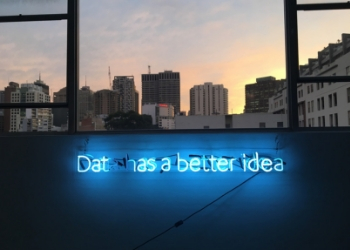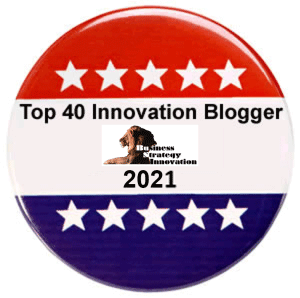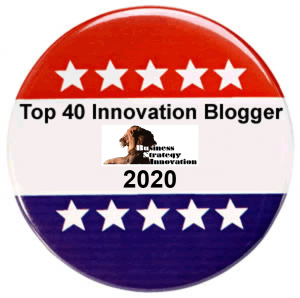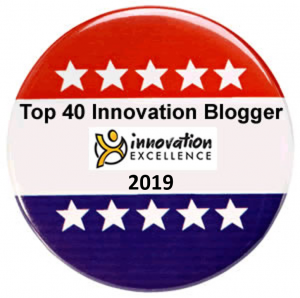It seems that the waves of change are not going to subside anytime soon. As AI and other advanced technologies permeate the workplace, flipping mindsets, learning new behaviours and skills and shaping organisational cultures are causing us to radically rethink work in ways that maximize the intelligence of both humans and machines. Leading companies are recognizing that these technologies are most effective when they complement humans, not replace them. There is also growing recognition that AI tools require human oversight. Many organizations lack readiness for this kind of impact and are not proactive in addressing the widening gap between AI and other emerging advanced technologies with the vital people factor. As humans and machines work together, even more, connectedness, creative conversations, and effective explanations will be at the very heart of the collaboration between people and machines, as we move towards radically rethinking work and maximizing intelligence.
The possibilities and opportunities for leveraging talent, that are emerging, can only be realized by individuals who collaborate with machines to become human-computer superminds – a group of individuals acting together in ways that seem intelligent. Operating from a kind of collective intelligence, which is an ability to do things that individuals in the groups could not have done previously. As machines can increasingly participate in intellectual, and physical activities of these groups we are able to combine people and machines to create “superminds that are smarter than any groups or individuals our planet has ever known”
Closing the “readiness gap” – what can organisations do about it?
This is an opportunity for organizations to not only develop strategic foresight, but they can also develop a systemic and cultural advantage that maximizes human and machine potential in their efforts to adapt, compete and grow.
Yet the Deloitte Global Human Capital Trends 2018 Report analysis of this “readiness gap” for this issue shows that, while 72 percent of their respondents see this area as important, only 31 percent feel ready to address it. Also, the impact of culture on business performance is hard to overstate: 82 percent of the respondents to Deloitte’s 2016 Global Human Capital Trends survey believe that culture is a potential competitive advantage.
Yet so few organisations truly understand its potential to create and nurture superminds that can drive and deliver strategy through disruption, by maximizing intelligence.
New 21st century data tools
To stimulate business growth amidst high levels of disruption in operating environments, organisations are required to observe their environments, select, interpret and act on data, information and knowledge in their efforts to adapt and grow. For example Amazon now has 100,000 robots in operation, which has shortened training for holiday workers to less than two days. Walmart recently deployed virtual reality technology to improve its in-store training and effectively simulate customer environments. Manufacturers such as Airbus and Nissan are finding ways to use collaborative robots, or “co-bots,” that work side by side with workers in factories.
Today, there are also new data tools available to help leaders measure and manage culture toward alignment with and achievement of business goals. Leaders now have access to new high precision tools to identify both their organisation strengths, as well as the hidden factors constraining their organisations growth ability. The OGI® (Organizational Growth Indicator®) is a 21st-century tool, vital for every business leader because it identifies and provides tangible metrics of a “readiness gap”.
It also identifies specific areas and what mindsets and behaviours, systems and processes need to be introduced or accelerated to lead, drive and support lasting organisational improvement and performance, innovation, growth and sustain success by maximizing intelligence, in the digital age.
Organizations are complex, adaptive systems
As AI and other advanced technologies permeate the workplace, our research indicates that there is a disconnect and even, a competitive element, between what organisations need to do to survive and thrive and what people are currently able to do. This is embodied in people’s mindsets, the crucial intellectual, emotional and visceral elements that enable people to be ready and receptive to change, facilitate and coach creative conversations, deliver effective explanations, make intelligent decisions and win in a VUCA world.
- What is a mindset?
A mindset represents more how we think, it captures how we feel and how we act as individuals and as whole organisations. It is an active and dynamic expression of an individual’s culture and consciousness, in that it taps into their underlying values, beliefs, and assumptions at play, within it.
- Why are mindsets important?
Mindsets influence the way people seek to fulfill their purpose and strategic mandate, and capture how we connect with ourselves, how we think, feel, make choices and decisions. As well as on the behaviours and actions we take and the results we get.
– Mindsets are unconsciously managed by our autonomic nervous system.
-Mindsets are a key part of our personalities and are based on our belief systems.
Mindsets shed light on a person’s unique active cognitive stylistic preferences, which shapes what they say and do, how they solve problems, set goals and make decisions – inside and outside of the “box.”
- What is an organisational mindset?
All organisational types demonstrate preferred mindsets which are expressed in behaviours, systems, and artifacts, all of which then impact on their ability to grow and transform.
An organisation’s set of collective mindsets about innovation and digitization will significantly impact its ability to embrace and apply them as positive, productive and competitive levers in the face of disruption and VUCA times.
The OGI® acknowledges and codifies the unique cognitive style that all organizations inherently have, which influences their approach to growth and transformation.
Complementing humans to develop superminds
Leading companies increasingly recognize that these technologies are most effective when they complement humans, not replace them. Through retooling to creating superminds, groups of individuals acting together, with machines, in ways that seem intelligent.
Which of course, also requires the redesign of mindsets, behaviours, and skillsets, and how people engage and collaborate with machines, one another, teams, customers, and with their ecosystem partners.
Culture is the glue that binds all of these disparate and complex elements together as we radically evolve rethinking work and maximizing intelligence in the 21st century.
Find out about The Coach for Innovators Certified Program, a collaborative, intimate and deep personalized learning program, supported by a global group of peers over 8-weeks, starting October 22, 2019. It is a deep blended learning program that will give you a deep understanding of the language, principles & applications of a human-centered approach to innovation, within your unique context. Find out more.
Contact us now at janet@imaginenation.com.au to find out how we can partner with you to learn, adapt and grow your business in the digital age.











